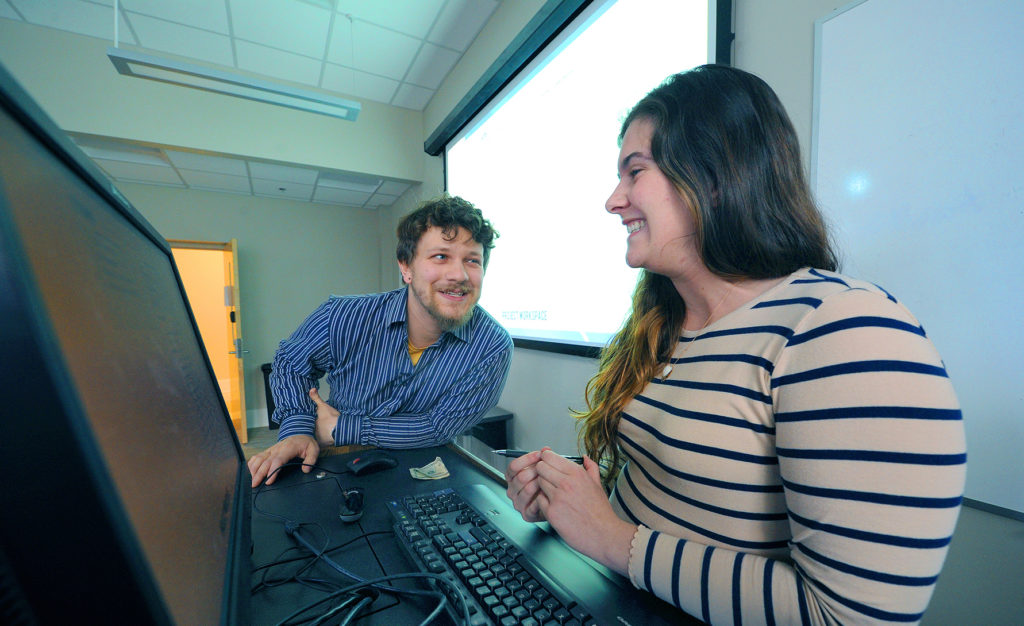
Hannah Gill has seen her home state of North Carolina change significantly since she was a youth. “I’m from Alamance County, a very rural community. In many ways, it’s a much more urban and global place than when I grew up,” says Gill. “I have new neighbors from Latin American countries like Mexico, Ecuador – extraordinary people who really made me interested in the places they were from.”
Gill, the director of the Latino Migration Project at the University of North Carolina at Chapel Hill and one of the founders of the Building Integrated Communities Program, says that human connection to her neighbors in a place that was quickly globalizing hooked her on the study of Latin American cultures.
Gill earned her undergraduate degree in anthropology from UNC-Chapel Hill. Her studies then took her to Oxford University on a Rotary International Ambassadorial Scholarship, where she earned her doctoral degree in anthropology with a focus on Latin America. Gill later spent time conducting research in the Dominican Republic before returning to Chapel Hill as a Rockefeller Scholar at the Center for Global Initiatives. As the director for the Latino Migration Project, Gill now oversees a few primary initiatives within the project, including the Building Integrated Communities program.
Founded in 2010, Building Integrated Communities is a collaborative University program that helps facilitate community planning and successful engagement between local North Carolina government and foreign-born, immigrant communities – primarily Hispanic and Latino/a/x – throughout the state. “We bring together community members and local government representatives to create a comprehensive plan for integration and leadership,” Gill says. “Many local government entities are responsible for very important aspects of our lives – everything from affordable housing to law enforcement to first responders. We’re very interested in engaging more immigrants and refugees in all civic processes.”
Communities that are involved initially participate in the program for two years. During that time, Gill and her team members Isa Godinez and Jorge Gutiérrez, as well as undergraduate and graduate students at UNC-Chapel Hill – host meetings each month so that government representatives and residents can share their goals for the community, identify key issues facing local immigrant populations and discuss strategies for effective resolution. At the end of this process, all participants create an action plan addressing the selected issues that is presented back to the local municipality and eventually adopted.
Winston-Salem, Sanford, High Point and Greenville have completed the Building Integrated Communities program, while Siler City and Chapel Hill are currently in progress. Over the course of the program’s history, more than 2,000 foreign-born residents from 26 different countries have participated in discussions and planning processes.
“We’ve had a tremendous response so far with a lot of active participation from committed individuals,” Gill says. “For example, in the case of Sanford, one of the key stakeholders throughout the process was a Colombia-born resident, and as a result of the Building Integrated Communities program, he was offered a leadership role with the city. We also saw success with installing a Google translate button on the homepage of the Sanford city government website to improve communication with citizens, and we’ve seen more than 1,400 users take advantage of that tool in the last few months.”
Closer to campus, Gill says the planning processes underway in Chapel Hill have already seen incredible engagement, with public meetings regularly held in six different languages and more than 250 residents and town representatives participating. “These sessions are open to anyone interested in getting involved, and each community takes it in a different direction,” Gill notes. “We’re just trying to think about how local governments can be better engaged with immigrant and refugee residents, and how they can include these populations in more decision-making for their communities.”
Looking to the future of the program, Gill hopes to expand the reach of Building Integrated Communities to serve diverse municipalities across the state and involve more students from the UNC-Chapel Hill campus. “This initiative is a real team effort between the Institute for the Study of the Americas, the Center for Global Initiatives, UNC Global, municipal partners, and of course the students,” Gill says. “Carolina students are hands-on throughout the entire process, doing research, facilitating focus groups, organizing public meetings, interpreting meetings in different languages, and so much more. I count on them to support this work.”
Read what Chapel Hill mayor Pam Hemminger said about the Building Integrated Communities Program.
By Jamie Gnazzo ’13, UNC Global




